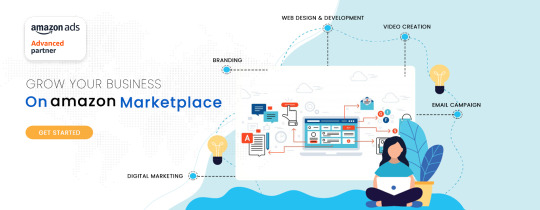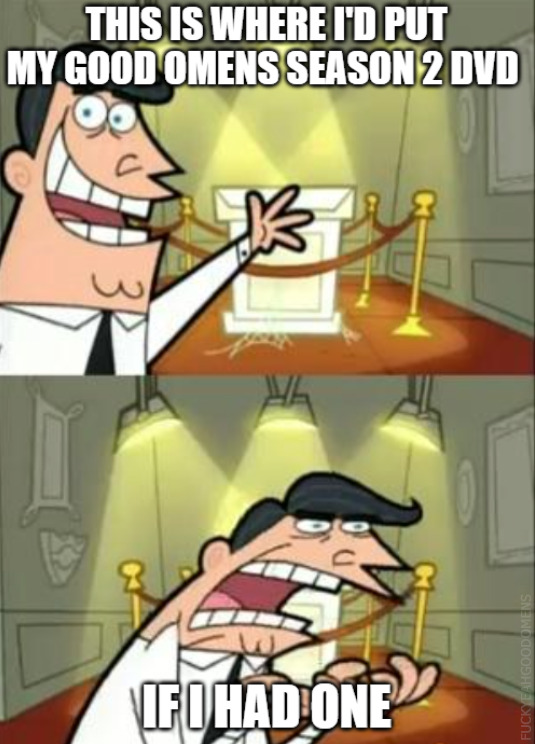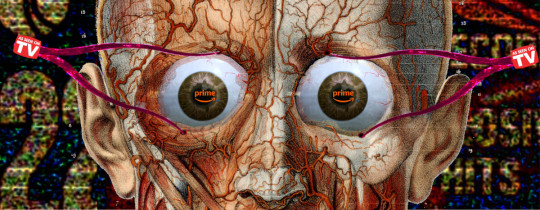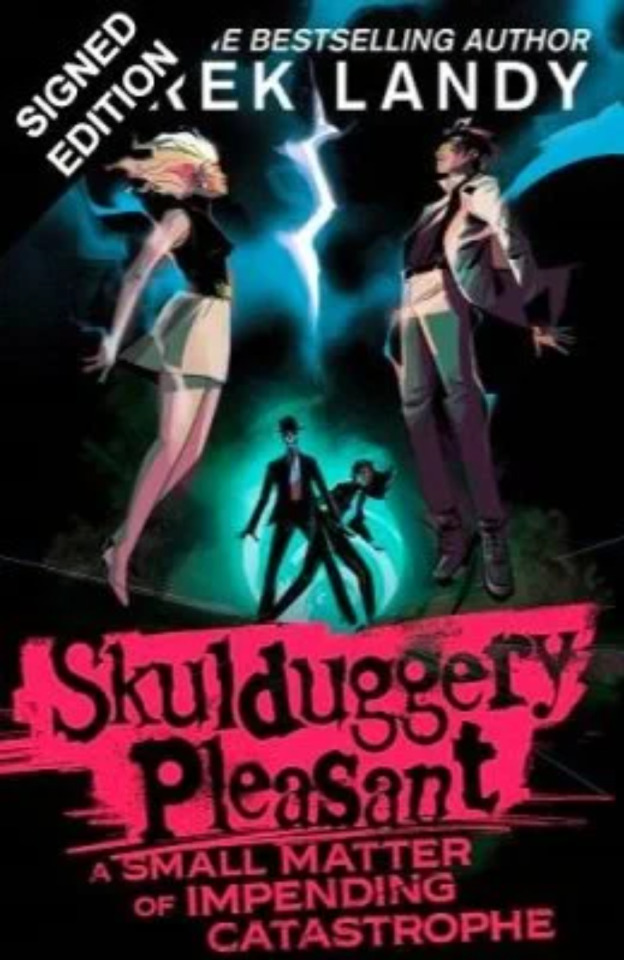#ads for amazon
Explore tagged Tumblr posts
Text
Amazon Marketing Services by BM Consulting | Boost Sales & Brand Visibility

Enhance your Amazon store with BM Consulting's expert Amazon Marketing Services. We drive growth with data-driven strategies, from PPC campaigns to comprehensive SEO. Partner with us to increase visibility, boost conversions, and dominate the marketplace. https://www.bmconsulting.in
#bm consulting#amazon shopping ads#amazon store advertising#amazon services#amazon ppc advertising#amazon pay per click#Advertisement for Amazon#Amazon marketing Services#advertising on amazon#ads for amazon#amazon marketing services#ppc amazon#amazon ppc ads#amazon ads india#amazon ppc marketing#advertise on amazon india#amazon ads in india#amazon ads campaign#amazon campaign#amazon advertising campaign#amazon sponsored ads#amazon ads manager#amazon advertising management#sponsored amazon ads#amazon advertising services#amazon display ads#amazon ads services#amazon ads cost#amazon display advertising#amazon headline search ads
0 notes
Text

#good omens#gos2#season 2#good omens memes#jokes#funny#also in light of prime adding adds... where is my dvd amazon? :D
4K notes
·
View notes
Text
Prime’s enshittified advertising

Prime's gonna add more ads. They brought in ads in January, and people didn't cancel their Prime subscriptions, so Amazon figures that they can make Prime even worse and make more money:
https://arstechnica.com/gadgets/2024/10/amazon-prime-video-is-getting-more-ads-next-year/
The cruelty isn't the point. Money is the point. Every ad that Amazon shows you shifts value away from you – your time, your attention – to the company's shareholders.
That's the crux of enshittification. Companies don't enshittify – making their once-useful products monotonically worse – because it amuses them to erode the quality of their offerings. They enshittify them because their products are zero-sum: the things that make them valuable to you (watching videos without ads) make things less valuable to them (because they can't monetize your attention).
This isn't new. The internet has always been dominated by intermediaries – platforms – because there are lots more people who want to use the internet than are capable of building the internet. There's more people who want to write blogs than can make a blogging app. There's more people who want to play and listen to music than can host a music streaming service. There's more people who want to write and read ebooks than want to operate an ebook store or sell an ebooks reader.
Despite all the early internet rhetoric about the glories of disintermediation, intermediaries are good, actually:
https://pluralistic.net/2022/06/12/direct-the-problem-of-middlemen/
The problem isn't with intermediaries per se. The problem arises when intermediaries grow so powerful that they usurp the relationship between the parties they connect. The problem with Uber isn't the use of mobile phones to tell taxis that you're standing on a street somewhere and would like a cab, please. The problem is rampant worker misclassification, regulatory arbitrage, starvation wages, and price-gouging:
https://pluralistic.net/2024/02/29/geometry-hates-uber/#toronto-the-gullible
There's no problem with publishers, distributors, retailers, printers, and all the other parts of the bookselling ecosystem. While there are a few, rare authors who are capable of performing all of these functions – basically gnawing their books out of whole logs with their teeth – most writers can't, and even the ones who can, don't want to:
https://pluralistic.net/2024/02/19/crad-kilodney-was-an-outlier/#intermediation
When early internet boosters spoke of disintermediation, what they mostly meant was that it would be harder for intermediaries to capture those relationships – between sellers and buyers, creators and audiences, workers and customers. As Rebecca Giblin and I wrote in our 2022 book Chokepoint Capitalism, intermediaries in every sector rely on chokepoints, narrows where they can erect tollbooths:
https://chokepointcapitalism.com/
When chokepoints exist, they multiply up and down the supply chain. In the golden age of physical, recorded music, you had several chokepoints that reinforced one another. Limited radio airwaves gave radio stations power over record labels, who had to secretly, illegally bid for prime airspace ("payola"). Retail consolidation – the growth of big record chains – drove consolidation in the distributors who sold to the chains, and the more concentrated distributors became, the more they could squeeze retailers, which drove even more consolidation in record stores. The bigger a label was, the more power it had to shove back against the muscle of the stores and the distributors (and the pressing plants, etc). Consolidation in labels also drove consolidation in talent agencies, whose large client rosters gave them power to resist the squeeze from the labels. Consolidation in venues drives consolidation in ticketing and promotion – and vice-versa.
But there's two parties to this supply chain who can't consolidate: musicians and their fans. With limits on "sectoral bargaining" (where unions can represent workers against all the companies in a sector), musicians' unions were limited in their power against key parts of the supply chain, so the creative workers who made the music were easy pickings for labels, talent reps, promoters, ticketers, venues, retailers, etc. Music fans are diffused and dispersed, and organized fan clubs were usually run by the labels, who weren't about to allow those clubs to be used against the labels.
This is a perfect case-study in the problems of powerful intermediaries, who move from facilitator to parasite, paying workers less while degrading their products, and then charge customers more for those enshittified products.
The excitement about "disintermediation" wasn't so much about eliminating intermediaries as it was about disciplining them. If there were lots of ways to market a product or service, sell it, collect payment for it, and deliver it, then the natural inclination of intermediaries to turn predator would be curbed by the difficulty of corralling their prey into chokepoints.
Now that we're a quarter century on from the Napster Wars, we can see how that worked out. Decades of failure to enforce antitrust law allowed a few companies to effectively capture the internet, buying out rivals who were willing to sell, and bankrupting those who wouldn't with illegal tactics like predatory pricing (think of Uber losing $31 billion by subsidizing $0.41 out of every dollar they charged for taxi rides for more than a decade).
The market power that platforms gained through consolidation translated into political power. When a few companies dominate a sector, they're able to come to agreement on common strategies for dealing with their regulators, and they've got plenty of excess profits to spend on those strategies. First and foremost, platforms used their power to get more power, lobbying for even less antitrust enforcement. Additionally, platforms mobilized gigantic sums to secure the right to screw customers (for example, by making binding arbitration clauses in terms of service enforceable) and workers (think of the $225m Uber and Lyft spent on California's Prop 22, which formalized their worker misclassification swindle).
So big platforms were able to insulate themselves from the risk of competition ("five giant websites, filled with screenshots of the other four" – Tom Eastman), and from regulation. They were also able to expand and mobilize IP law to prevent anyone from breaking their chokepoints or undoing the abuses that these enabled. This is a good place to get specific about how Prime Video works.
There's two ways to get Prime videos: over an app, or in your browser. Both of these streams are encrypted, and that's really important here, because of a law – Section 1201 of the 1998 Digital Millennium Copyright Act – which makes it really illegal to break this kind of encryption (commonly called "Digital Rights Management" or "DRM"). Practically speaking, that means that if a company encrypts its videos, no one is allowed to do anything to those videos, even things that are legal, without the company's permission, because doing all those legal things requires breaking the DRM, and breaking the DRM is a felony (five years in prison, $500k fine, for a first offense).
Copyright law actually gives subscribers to services like Prime a lot of rights, and it empowers businesses that offer tools to exercise those rights. Back in 1976, Sony rolled out the Betamax, the first major home video recorder. After an eight-year court battle, the Supreme Court weighed in on VCRs and ruled that it was legal for all of us to record videos at home, both to watch them later, and to build a library of our favorite shows. They also ruled that it was legal for Sony – and by that time, every other electronics company – to make VHS systems, even if those systems could be used in ways that violated copyright because they were "capable of sustaining a substantial non-infringing use" (letting you tape shows off your TV).
Now, this was more than a decade before the DMCA – and its prohibition on breaking DRM – passed, but even after the DMCA came into effect, there was a lot of media that didn't have DRM, so a new generation of tech companies were able to make tools that were "capable of sustaining a substantial non-infringing use" and that didn't have to break any DRM to do it.
Think of the Ipod and Itunes, which, together, were sold as a way to rip CDs (which weren't encrypted), and play them back from both your desktop computer and a wildly successful pocket-sized portable device. Itunes even let you stream from one computer to another. The record industry hated this, but they couldn't do anything about it, thanks to the Supreme Court's Betamax ruling.
Indeed, they eventually swallowed their bile and started selling their products through the Itunes Music Store. These tracks had DRM and were thus permanently locked to Apple's ecosystem, and Apple immediately used that power to squeeze the labels, who decided they didn't like DRM after all, and licensed all those same tracks to Amazon's DRM-free MP3 store, whose slogan was "DRM: Don't Restrict Me":
https://memex.craphound.com/2008/02/01/amazons-anti-drm-tee/
Apple played a funny double role here. In marketing Itunes/Ipods ("Rip, Mix, Burn"), they were the world's biggest cheerleaders for all the things you were allowed to do with copyrighted works, even when the copyright holder objected. But with the Itunes Music Store and its mandatory DRM, the company was also one of the world's biggest cheerleaders for wrapping copyrighted works in a thin skin of IP that would allow copyright holders to shut down products like the Ipod and Itunes.
Microsoft, predictably enough, focused on the "lock everything to our platform" strategy. Then-CEO Steve Ballmer went on record calling every Ipod owner a "thief" and arguing that every record company should wrap music in Microsoft's Zune DRM, which would allow them to restrict anything they didn't like, even if copyright allowed it (and would also give Microsoft the same abusive leverage over labels that they famously exercised over Windows software companies):
https://web.archive.org/web/20050113051129/http://management.silicon.com/itpro/0,39024675,39124642,00.htm
In the end, Amazon's approach won. Apple dropped DRM, and Microsoft retired the Zune and shut down its DRM servers, screwing anyone who'd ever bought a Zune track by rendering that music permanently unplayable.
Around the same time as all this was going on, another company was making history by making uses of copyrighted works that the law allowed, but which the copyright holders hated. That company was Tivo, who products did for personal video recorders (PVRs) what Apple's Ipod did for digital portable music players. With a Tivo, you could record any show over cable (which was too expensive and complicated to encrypt) and terrestrial broadcast (which is illegal to encrypt, since those are the public's airwaves, on loan to the TV stations).
That meant that you could record any show, and keep it forever. What's more, you could very easily skip through ads (and rival players quickly emerged that did automatic ad-skipping). All of this was legal, but of course the cable companies and broadcasters hated it. Like Ballmer, TV execs called Tivo owners "thieves."
But Tivo didn't usher in the ad-supported TV apocalypse that furious, spittle-flecked industry reps insisted it would. Rather, it disciplined the TV and cable operators. Tivo owners actually sought out ads that were funny and well-made enough to go viral. Meanwhile, every time the industry decided to increase the amount of advertising in a show, they also increased the likelihood that their viewers would seek out a Tivo, or worse, one of those auto-ad-skipping PVRs.
Given all the stink that TV execs raised over PVRs, you'd think that these represented a novel threat. But in fact, the TV industry's appetite for ads had been disciplined by viewers' access to new technology since 1956, when the first TV remotes appeared on the market (executives declared that anyone who changed the channel during an ad-break was a thief). Then came the mute button. Then the wireless remote. Meanwhile, a common VCR use-case �� raised in the Supreme Court case – was fast-forwarding ads.
At each stage, TV adapted. Ads in TV shows represented a kind of offer: "Will you watch this many of these ads in return for a free TV show?" And the remote, the mute button, the wireless remote, the VCR, the PVR, and the ad-skipping PVR all represented a counter-offer. As economists would put it, the ability of viewers to make these counteroffers "shifted the equilibrium." If viewers had no defensive technology, they might tolerate more ads, but once they were able to enforce their preferences with technology, the industry couldn't enshittify its product to the liminal cusp of "so many ads that the viewer is right on the brink of turning off the TV (but not quite)."
This is the same equilibrium-shifting dynamic that we see on the open web, where more than 50% of users have installed an ad-blocker. The industry says, "Will you allow this many 'sign up to our mailing list' interrupters, pop ups, pop unders, autoplaying videos and other stuff that users hate but shareholders benefit from" and the ad-blocker makes a counteroffer: "How about 'nah?'":
https://www.eff.org/deeplinks/2019/07/adblocking-how-about-nah
TV remotes, PVRs and ad-blockers are all examples of "adversarial interoperability" – a new product that plugs into an existing one, extending or modifying its functions without permission from (or even over the objections of) the original manufacturer:
https://www.eff.org/deeplinks/2019/10/adversarial-interoperability
Adversarial interop creates a powerful disciplining force on platform owners. Once a user grows so frustrated with a product's enshittification that they research, seek out, acquire and learn to use an adversarial interop tool, it's really game over. The printer owner who figures out where to get third-party ink is gone forever. Every time a company like HP raises its prices, they have to account for the number of customers who will finally figure out how to use generic ink and never, ever send another cent to HP.
This is where DMCA 1201 comes into play. Once a product is skinned with DRM, its manufacturers gain the right to prevent you from doing legal things, and can use the public's courts and law-enforcement apparatus to punish you for trying. Take HP: as soon as they started adding DRM to their cartridges, they gained the legal power to shut down companies that cloned, refilled or remanufactured their cartridges, and started raising the price of ink – which today sits at more than $10,000/gallon:
https://pluralistic.net/2024/09/30/life-finds-a-way/#ink-stained-wretches
Using third party ink in your printer isn't illegal (it's your printer, right?). But making third party ink for your printer becomes illegal once you have to break DRM to do so, and so HP gets to transform tinted water into literally the most expensive fluid on Earth. The ink you use to print your kid's homework costs more than vintage Veuve Cliquot or sperm from a Kentucky Derby-winning thoroughbred.
Adversarial interoperability is a powerful tool for shifting the equilibrium between producers, intermediaries and buyers. DRM is an even more powerful way of wrenching that equilibrium back towards the intermediary, reducing the share that buyers and sellers are able to eke out of the transaction.
Prime Video, of course, is delivered via an app, which means it has DRM. That means that subscribers don't get to exercise the rights afforded to them by copyright – only the rights that Amazon permits them to have. There's no Tivo for Prime, because it would have to break the DRM to record the shows you stream from Prime. That allows Prime to pull all kinds of shady shit. For example, every year around this time, Amazon pulls popular Christmas movies from its free-to-watch tier and moves them into pay-per-view, only restoring them in the spring:
https://www.reddit.com/r/vudu/comments/1bpzanx/looks_like_amazon_removed_the_free_titles_from/
And of course, Prime sticks ads in its videos. You can't skip these ads – not because it's technically challenging to make a 30-second advance button for a video stream, and doing so wouldn't violate anyone's copyright – but because Amazon doesn't permit you to do so, and the fact that the video is wrapped in DRM makes it a felony to even try.
This means that Amazon gets to seek a different equilibrium than TV companies have had to accept since 1956 and the invention of the TV remote. Amazon doesn't have to limit the quantity, volume, and invasiveness of its ads to "less the amount that would drive our subscribers to install and use an ad-skipping plugin." Instead, they can shoot for the much more lucrative equilibrium of "so obnoxious that the viewer is almost ready to cancel their subscription (but not quite)."
That's pretty much exactly how Kelly Day, the Amazon exec in charge of Prime Video, put it to the Financial Times: they're increasing the number of ads because "we haven’t really seen a groundswell of people churning out or cancelling":
https://www.ft.com/content/f8112991-820c-4e09-bcf4-23b5e0f190a5
At this point, attentive readers might be asking themselves, "Doesn't Amazon have to worry about Prime viewers who watch in their browsers?" After all browsers are built on open standards, and anyone can make one, so there should be browsers that can auto-skip Prime ads, right?
Wrong, alas. Back in 2017, the W3C – the organization that makes the most important browser standards – caved to pressure from the entertainment industry and the largest browser companies and created "Encrypted Media Extensions" (EME), a "standard" for video DRM that blocks all adversarial interoperability:
https://www.eff.org/deeplinks/2017/09/open-letter-w3c-director-ceo-team-and-membership
This had the almost immediate effect of making it impossible to create an independent browser without licensing proprietary tech from Google – now a convicted monopolist! – who won't give you a license if you implement recording, ad-skipping, or any other legal (but dispreferred) feature:
https://blog.samuelmaddock.com/posts/the-end-of-indie-web-browsers/
This means that for Amazon, there's no way to shift value away from the platform to you. The company has locked you in, and has locked out anyone who might offer you a better deal. Companies that know you are technologically defenseless are endlessly inventive in finding ways to make things worse for you to make things better for them. Take Youtube, another DRM-video-serving platform that has jacked up the number of ads you have to sit through in order to watch a video – even as they slash payments to performers. They've got a new move: they're gonna start showing you ads while your video is paused:
https://www.usatoday.com/story/money/2024/09/20/youtube-pause-ads-rollout/75306204007/
That is the kind of fuckery you only come up with when your victory condition is "a service that's almost so bad our customers quit (but not quite)."
In Amazon's case, the math is even worse. After all, Youtube may have near-total market dominance over a certain segment of the video market, but Prime Video is bundled with Prime Delivery, which the vast majority of US households subscribe to. You have to give up a lot to cancel your Prime subscription – especially since Amazon's predatory pricing devastated the rest of the retail sector:
https://pluralistic.net/2022/11/28/enshittification/#relentless-payola
Amazon's founding principle was "customer obsession." Ex-Amazoners tell me that this was more than an empty platitude: arguments over product design were won or lost based on whether they could satisfy the "customer obsession" litmus test. Now, everyone falls short of their ideals, but sticking to your ideals isn't merely a matter of internal discipline, of willpower. Living up to your ideals is a matter of external discipline, too. When Amazon no longer had to contend with competitors or regulators, when it was able to use DRM to control its customers and use the law to prevent them from using its products in legal ways, it lost those external sources of discipline.
Amazon suppliers have long complained of the company's high-handed treatment of the vendors who supplied it with goods. Its workers have complained bitterly and loudly about the dangerous and oppressive conditions in its warehouses and delivery vans. But Amazon's customers have consistently given Amazon high marks on quality and trustworthiness.
The reason Amazon treated its workers and suppliers badly and its customers well wasn't that it liked customers and hated workers and suppliers. Amazon was engaged in a cold-blooded calculus: it understood that treating customers well would give it control over those customers, and that this would translate market power to retain suppliers even as it ripped them off and screwed them over.
But now, Amazon has clearly concluded that it no longer needs to keep customers happy in order to retain them. Instead, it's shooting for "keeping customers so angry that they're almost ready to take their business elsewhere (but not quite)." You see this in the steady decline of Amazon product search, which preferences the products that pay the biggest bribes for search placement over the best matches:
https://pluralistic.net/2023/11/06/attention-rents/#consumer-welfare-queens
And you see it in the steady enshittification of Prime Video. Amazon's character never changed. The company always had a predatory side. But now that monopoly and IP law have insulated it from consequences for its actions, there's no longer any reason to keep the predator in check.

Tor Books as just published two new, free LITTLE BROTHER stories: VIGILANT, about creepy surveillance in distance education; and SPILL, about oil pipelines and indigenous landback.


If you'd like an essay-formatted version of this post to read or share, here's a link to it on pluralistic.net, my surveillance-free, ad-free, tracker-free blog:
https://pluralistic.net/2024/10/03/mother-may-i/#minmax
769 notes
·
View notes
Text
the stupidest part of online shopping algorithms is the assumption that just because you bought something once, you’re now in the market for more of that thing, forever
like dude, i already own a blender. you know this about me. i purchased a blender. from you. last week. no, I would not like to subscribe to monthly blender deliveries. i already possess the ideal number of blenders (1 blender). i have never wanted to buy a blender less than i have at this moment
#yes this is about amazon#one day I shall break free of bezos’ claws#but until then my punishment is to fend off 53 new blender ads
334 notes
·
View notes
Text

#HOLY SHIT I FORGOT HOW TO DRAW KAHAKU#i thought about adding my babies shigaraki and thragg but changed my mind#billy batson#dc captain marvel#shazam#invincible#my fanart#fanart#fan art#jjk#jujutsu kaisen#gojo satoru#jujutsu gojo#jjk gojo#eddie gluskin#outlast#outlast whistleblower#outlast fanart#homelander#the boys series#the boys tv#the boys amazon#kaworu nagisa#evangelion kaworu#nge kaworu#neon genesis kaworu#kahaku#to your eternity#to you the immortal#fumetsu no anata e
152 notes
·
View notes
Text
super excited to announce I will have the pleasure of appearing as Karlach (and myself) at MagicCon Chicago this year! Please come say hello and hang out!

#sponsored#ad#mcchicago#magiccon#convention appearance#autumn ivy#autumnivy#cosplayer#the bone collector#narrator#actor#costumer#amazon#alternative#cosplay#Karlach
179 notes
·
View notes
Text
i'm this 🤏 close to taking out a loan to buy an incinerating toilet. i'm not going to. but i'm going to spend a lot of time with a lot of weird tabs open.
#original#the fucking septic filled up again somehow#it went 17 years without needing to call someone in and now it's been what. a year? since the last time.#adding a fucking portable water heater to my amazon wishlist so i can take an outdoor bath without hauling buckets#when this credit card leaves its interest free promo period i am turbo fucked lmao
329 notes
·
View notes
Text












Total Drama, but it's funny tags i got from @/dear-ao3
#cheese posting#might make a part 2 since there's *alot* of potential for them#i purposefully tried to find tags that could fit G3 characters since i don't think i've made enough with them#OH and i've tried adding leshawna more often in these. she deserves the attention too#td ezekiel#td scarlett#td sky#td shawn#td amy#td sammy#td courtney#td gwen#td sierra#td heather#td cody#td alejandro#td trent#gwourtney#gwuncney#td tyler#td leshawna#td max#tdas#total drama memes#total drama textposts#total drama#exams are in literally 2 days wish me luck <3#team amazons
251 notes
·
View notes
Text
why is netflix spearheaded by absolute morons who decide to cancel their shows that actually do well?
Shadow and Bone + the spin off that would’ve been INCREDIBLY successful, Six of Crows
and now Dead Boy Detectives.
it’s just WEIRD like what is their business plan? Whatever happened to letting shows grow to their max potential instead of cancelling it before it even has a chance to breathe.
#thinking how paper girls got cancelled the same WEEK the first season came out#but that’s amazon prime so my girlies weren’t added#anyway#i needed to yell#dead boy detectives#dbd#charles rowland#edwin paine#edwin payne#niko sasaki#crystal palace#shadow and bone#six of crows#kaz brekker#inej ghafa#jesper fahey#nina zenik#wylan hendriks#wylan van eck#matthias helvar#nikolai lantsov#alina starkov#zoya nazyalensky#genya safin
229 notes
·
View notes
Text

FUCK OFFFFFF
#IVE LITERALLY BEEN ON AMAZON ALL DAY#they weren't even officially released!!!#this is just like the very first creepro release!!!#apologies ill add an id in a bit#monster high#monster high dolls#monster high creeproductions#monster high gen 1#edit: added an id#id in alt#also just noticed they disabled comments on this#they must be getting torn apart on past posts#good honestly cuz this is bullshit#it genuinely feels like they made less of the twins for whatever reason#im so confused because the last two releases gave me a lot of hope for this one#im honestly really mad about the amount of time i wasted hoping to get them#how long has it been since they realized they were out???#give a bitch a heads up!!!
62 notes
·
View notes
Text

A lil guy !
#honkai star rail#dan heng#genuinely have a million things i wanna draw and then zero energy#so dan heng in a hoodie#now i gotta go get dinner sooooo maybe that will give energy and then i can draw more of what i actually wanna draw#but i kinda spent like ... hours ? talking to my mom earlier today#since shes been in the hospital for many many days#so i was catching her up on whats been goin on and showed her silly lil videos#and telling her how hyped i was for summer hrid and she (very patient with my fe talk)#was like you always tell me about banners being bad so it must have made you REALLY happy to say the whole banner is good#and im like yeah and i had multiple people on multiple sites like hey salmon/moeblob did ya see the banner#and she was like thats so cool that people acknowledge who you like and im like yeah it is p cool#and then i told her how mad i was at the absolutely criminal act of limiting how you can watch clue (1985 hit movie)#like i told her yeah sure i own it twice on dvd and once on itunes and that the only way to watch those#are either desktop or ps2 and how i dont have access to my itunes email#and i dont have it on my laptop so i sadly would have to rebuy the movie on itunes under a new acct#then i said how i loved that it was free to watch with ads on yt and id watched it twice that way#but then recently wanted to watch it on there but laptop and hoo boy you have to buy or rent it now#so i v angrily was like fine whatever ill do the thing and leave my room and go watch it on my moms tv#while she isnt around and use her amazon prime where it should be included except ! IT WASNT!#YOU HAVE TO HAVE PRIME TO BUY OR RENT IT NOW TOO!#HOW ARE THEY DOING THIS AND WHY ! who in the world is watching this movie so much that isnt me that they have to charge for it now#on all platforms unless you straight up pirate it#and hey why would i of all people be needing to pirate a movie i own physically two times and digitally once#this is literally a personalized attack to me#and my mom was like i understand how you feel cause yeah thats really weird to do to a 1985 movie#and im like yes exactly i have morals and principles that make me opposed to this and its v maddening#and she said she understood and its ok next time we are having power issues and i have to shut down#that if i really wanna watch it i can rent it on her amazon account and i looked at her and shes like oh you feel v strongly about this#and i do! I HAVE HAD IT GIFTED TO ME TWICE ! I BOUGHT IT ONCE! WHY DO I HAVE TO RENT IT FOR MORE MONEY!
276 notes
·
View notes
Text
the most life saving firefox extension for me (aside from ublock origin) is definitely library extension, if you're browsing goodreads the extension will show you this on the corner of the page:

showing you whether or not the book you want is available at your library, in either it's physical or electronic collection!
#luckily my library does have a wishlist function so a while ago i went through my entire goodreads tbr and added all the books at my library#to my wishlist so i can find them again easier#also renting audiobooks through overdrive with the libby app is super easy!#library extension also works with openlibrary and scribd/everand but i dont subscribe to that anymore#**also works on other websites like chapters indigo and amazon so can save you money too!
133 notes
·
View notes
Text
tomorrow is the one-month anniversary of me not ordering any packages from amazon! yes!!!!! ordinarily i would have ordered 823579237 packages within this one-month period, so i'm calling this a humble, tiny life win.
#still trying to disentangle myself totally from the streaming services (amazon music was my music service of choice. weary sigh!#and it's hard to give up the stuff on prime video even with those stupid ads)#but i feel like not ordering physical objects and shopping local instead is at least a tiny tangible change for the world#dollsome's deep thoughts
54 notes
·
View notes
Text

HII tumbler ppl, here is a wip cuz why not.
#the boys fanart#homelander#the homelander#the boys amazon#the boys#the boys fandom#wet puppy#Fanart#degitalart#fanart#artists on tumblr#It's that stupid burger ad xD#current wip#art wip#my wips#wip#work in progress
80 notes
·
View notes
Text
Skulduggery Pleasant A Small Matter of Impending Catastrophe


Standard VS Signed Exclusive Edition
"In 1962, three sorcerers converged to do battle in a hidden chamber near a disused platform in the London Underground. Prophecy foretold that the victor would hold the very fate of humanity in their hands. Since then... nothing. Now, the people who are trying to find out exactly what happened all those years ago are being murdered – there is a killer coming after them, a killer with a plan – and their only hope for survival lies with Skulduggery Pleasant and Valkyrie Cain. Because when the end of the world comes knocking, our first line of defence must always be sarcasm. Unstoppable, withering sarcasm."
"It all kicks off September 12, with 6 weekly episodes, telling a brand new story that takes place between Books 16 and 17.
The BOOK version will come out on October 23, featuring an amazing cover by Matt Taylor." [source]
#skulduggery pleasant#sp covers#the bigger amazon version of the cover dropped!#and i added the special edition cover#bc this is the first time i prefer it's covers over the original#shame the quality of the pics is always so bad on the WS website#ngl at this point I'm more excited for new art#and less for new writing#EDIT: added the date
19 notes
·
View notes
Text


Super excited to announce I will have the pleasure of appearing as Karlach (and myself) at MagicCon Chicago this year! Please come say hello and hang out!
#sponsored#ad#karlach#magiccon#magicconchicago#mcc2025#karlach cosplay#appearance#autumn ivy#autumnivy#cosplayer#the bone collector#narrator#actor#costumer#amazon#alternative#cosplay
105 notes
·
View notes